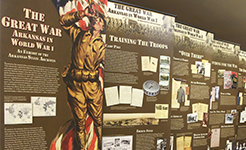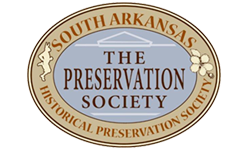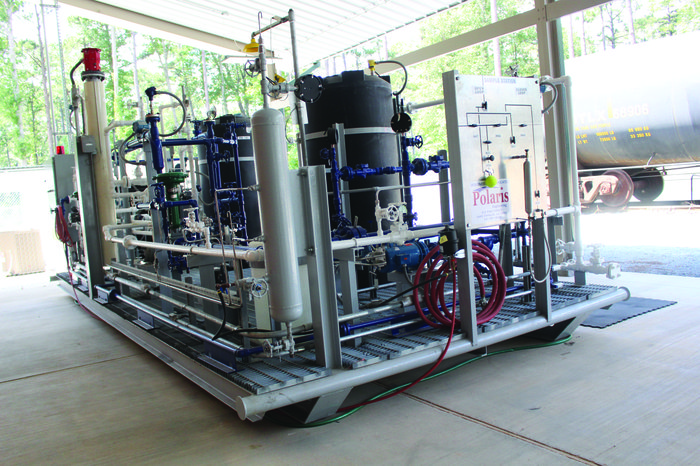By Kaitlyn Rigdon
This article was published September 2, 2018 at 5:00 a.m.
By Kaitlyn Rigdon
Staff Writer
A national issue concerning industry and economic growth is a lack of workforce, which is directly affecting Union County, home to many industry businesses.
To raise awareness of the issue industries are facing, businesses in Union County have begun having meetings with teachers and school leaders.
The concern was brought to Rory Gulick’s attention when speaking with industry leaders as part of his job with the Arkansas Economic Development Commission. Gulick is responsible for visiting with business industries to identify concerns, issues or potential opportunity, he said.
Gulick said one of the top issues he hears from the industries in Union County is their lack of a workforce.
“I constantly heard over and over again, ‘we have job openings, we just can’t find skilled people to put into these jobs,’” Gulick said.
Gulick decided to meet with El Dorado-Union County Chamber of Commerce’s President and CEO Mike Dumas about the issue, which ties into the economic development the industries have in Union County.
Gulick said Dumas had an idea to pull both the industries and the schools together, “and just start having conversations.”
Dumas said it was important that the educators be involved because of their influences on what a student does following high school.
The first meeting was held last fall, where the industries pulled educators from local public schools and South Arkansas Community College together to discuss the lack of workforce they are facing.
Since then there have been additional meetings.
Gulick said during the meetings, the industries discussed the issue they are facing with a lack of workforce and the opportunities their businesses have available. They told the educators the type of skill sets they are needing and searching for.
Gulick said the teachers responded, asking questions, such as: “What are those skills?” and “What do we need to be teaching in the classroom in order to prepare kids for those kinds of jobs?”
The meetings led to the educators receiving tours of many of the plants.
The second meeting took place last spring and Gulick said more people were present, with two additional plant tours.
From the meetings, two focus groups have been formed. One of the groups is focusing on a manufacturing day, which is a national program that exposes students to manufacturing. Gulick said the focus group is currently working with the college to get the program started.
Gulick said manufacturing day will include ninth-graders from all of the Union County school districts, which will include about 600 kids. They are hoping to split the program into two groups of students; one group will go in the fall and one in the spring.
The second focus group is a communication committee. The communication committee is in charge of finding the best contacts between the schools and the industries. “Trying to develop those connections,” Gulick added.
They also decided there was a need for a public relations process. “One of the reasons we want to do this public relations is to just get the community aware of what kind of manufacturing there is here in this community,” Gulick said. “What kind of neat things are really happening.”
Gulick emphasized that, although a four-year degree is fantastic, there are other options.
“For those kids that really don’t have a desire to go get a four-year degree, there are some really good opportunities out there for them in the manufacturing process,” he said. “We also want the parents to understand that these kids can really do well. If they don’t want to go to a four-year school, we need to be encouraging them to look at different kinds of trades and skills because there are really good opportunities out there.”
Dumas reiterated that what they are trying to do is expose students to the opportunities that Union County offers.
“I think we adults are not fair to the kids by letting them know what’s available,” Dumas said. “So that’s what we’re trying to do … Expose them to all of these opportunities out there besides a two or four year college degree, that in a lot of cases, doesn’t guarantee you a job after four years with a degree in your hand.”
Gulick added that the county has had to turn down manufacturers that were wanting to come to the county because the workforce isn’t there.
“I’ve got three or four in my head right now that I know of that have had to actually turn down the opportunity or send something back to another plant because they couldn’t find the workers here in Union County,” Gulick said. “You think it may be 20 jobs, but that’s 20 jobs and they’re good paying jobs and they’ve got benefits. There are good opportunities for growth.”
Although there is an issue of declining workforce in the manufacturing field, local schools are doing their part to raise awareness to the fact that there are other options than a four-year degree.
South Arkansas Community College
SouthArk offers a variety of classes for both credit and non-credit workforce education. The college works closely with the industries, making sure they are training the students in realistic environments.
President of the college, Barbara Jones, said in the last five years, the college has trained over 600 students.
There are two routes that a student can go at SouthArk: credit or non-credit.
The Industrial and Technical Education at SouthArk:
• Provides for anticipated workforce shortages and growth.
• Provides a steady “pipeline” of trained workers for industry.
• Ensures symmetry and consistency of training.
• Raises the educational level, per capita income, and quality of life for citizens of the region.
• Builds a stronger, safer and more knowledgeable workforce for local businesses and industries competing in a global environment.
One route a student can take is Process Technology, which is a path that essentially prepares the students to be a chemical processor operator, Stephanie Tully-Dartez said.
Tully-Dartez is the college’s associate vice president for planning and career education.
“They have to have things that you would expect from an industry,” Tully-Dartez said. “Safety, quality, instrumentation. But it’s also important to know that they have to have things like physical science and chemistry, because these are STEM fields … This is technical work.”
Another route is Industrial Technology Mechatronics. This path is geared towards the electrical work and instrumentation work in that area. The program has a certificate of proficiency that is completable in one semester, she said.
“The ideal situation is that the person completes the full four semesters, a two-year degree, with the associates of applied science industrial technology,” Tully-Dartez said.
The first portion of these programs are available through the secondary technical center, meaning local high school students can begin them their junior year.
“We can get them in and get them credit toward their associate degree starting out their junior year in high school,” she added.
Sherry Howard, associate vice president for workforce advancement, said she is primarily in charge of the non-credit workforce training, which includes training incumbent employees on technical skills for the industries.
“It’s very customizable depending on the industry and we can set up a training class real quick, get it done and get the employees back to work,” Howard said. “It is very industry driven and a lot of times the curriculum is developed by our industry.”
In addition to doing training in the classroom, SouthArk’s Advanced Manufacturing Training Center offers hands-on training for both credit and non-credit students.
“It’s important to recognize that we’re not just putting content in front of them,” Tully-Dartez said. “Everything that we’re doing in both areas is very heavy on the simulation and to be as realistic and real world as possible.”
Tully-Dartez said the college has about 180 students between El Dorado High School and the county high schools taking classes with the secondary technical center. Although, not all 180 students are in the Industrial Tech Mechatronics program, which is in its second year of being offered to high school students.
El Dorado High School
El Dorado High School Principal Alva Reibe said she has attended several meetings with the businesses. She said the meetings have been very informative.
“Attending these meetings has made me so much more aware of the workforce needed in our community and we have shared those needs with our students,” Reibe said. “The teachers (who attended the meetings) commented on how much they enjoyed seeing and learning about our local industries and learning their needs.”
Beginning in the spring, the high school will be offering a pre-apprenticeship course to the students. Reibe said the program is partnered with the National Apprenticeship Training Foundation.
She added that Batesville High School piloted the program last year and “had a tremendous amount of success.”
Students will learn a number of things from the program, including the seven things employees want from them: Show up to work; Get along with co-workers; Follow orders; Listening to instructions; Being trustworthy; Being a go-getter; Willing to stay and not leave in a month.
“Students will learn about characteristics of a good employee, such as teamwork, problem solving and critical thinking, workplace ethics and interviewing techniques,” Reibe said.
“I think it’s very important for students to know their options, whether they are attending college or not,” she said. “Of course with the El Dorado Promise, we have developed a college going culture within our school, but not every student is college bound. We have learned many opportunities for students who are not going to college and those opportunities are available right here in El Dorado.”
Smackover-Norphlet
Jennifer Lee, Smackover-Norphlet’s curriculum director, said she was one of the representatives from their school district to attend the meetings with the businesses.
“There’s a lot of opportunities for a lot of well paying jobs, with outstanding benefits and students don’t have to have a four-year degree for all of the jobs,” Lee said.
Lee said the Smackover-Norphlet School District offers programs to their students to prepare them for the workforce.
One program they offer is an engineering program that is currently in its third year. The first year, the students take intro to engineering design, the second year they take principles of engineering and the third year is computer integrated manufacturing.
“We have industry equipment in what you would see in industry, in manufacturing places, we have that on campus and our students are using this,” Lee said. “Those experiences really would prepare a student for multiple routes.”
Smackover-Norphlet has also begun to start teaching students about STEM at a younger age. Lee said every middle school student takes two STEM classes a year.
“What we’re trying to do is we’ve got the life sciences, the physical sciences, computer science,” she said. “We want to expose our students when they’re in middle school to all of these opportunities with STEM so that they don’t just think, ‘oh, it’s only engineering.’”
Lee discussed STEM Night that the district has every year. Local industries donate door prizes, including laptops, tablets, drones, etc. to the students and also set up booths to show them what they do at their local plants.
Lee said the district has about 30 to 40 students in the engineering program. The school also encourages students to take courses with SouthArk, which gives them about 30 hours of credit, she added.
Strong-Huttig
Superintendent Jeff Alphin of Strong-Huttig said he also attended the first meeting with the businesses.
“I think it’s a great initiative,” Alphin said. “We encourage our students as juniors and seniors that vocational education is a choice that we offer our students on campus, so they can go to SouthArk half a day when they’re juniors and seniors and earn credit.”
There are about 15 students in the vocation education program from Strong-Huttig.
He added that they have the opportunity to have their technical certification when they finish the program, which takes two years.
Tina Raney, business education teacher at Strong-Huttig said they are currently offering a class called Financial Planning and Wealth Management.
Raney, who teaches the class, said this is the first year that class has been offered, and it is required that a licensed business teacher teach the course.
Raney, who also attended the meetings with the manufacturers, said she tries to focus on what they said they were looking for, including soft skills.
“I learned that’s what they need. They need people to show up on time, stay off their phones and will actually work,” Raney said. “
Raney also teaches career development, which is offered to eighth-graders and focuses on looking at all types of jobs.
Alphin said that if any industries would like to talk about being active with the school district, to contact him and that they are welcome.






